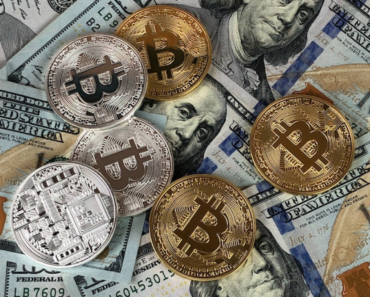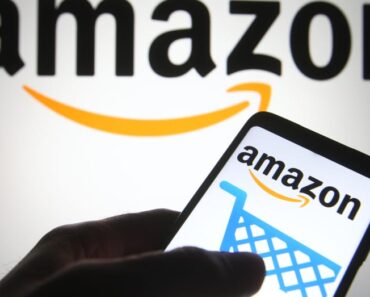In the dynamic digital age, the role of social media in American politics and democracy has taken on an unprecedented significance. Platforms such as Facebook, Twitter, and Instagram are transforming the landscape of electoral campaigns, reshaping citizen engagement, and influencing democratic processes in unique ways.
Lire aussi: Matt Willis’ Candid Battle with Addiction: A Raw and Emotional Journey
The Power of Social Media
Social media’s meteoric rise to become a quintessential tool in modern politics is nothing short of remarkable. These platforms have shifted the paradigm of political communication and disseminating political information. Politicians and parties use Twitter to release policy proposals directly to the public, bypassing traditional media outlets. Citizen movements leverage Facebook and Instagram to rally support and ignite important societal discussions. Undeniably, these digital platforms have democratized access to political discourse, shaping a new era of public engagement.
Electoral Campaigns in the Era of Social Media
In contemporary American elections, social media’s influence is paramount. Candidates refine their online communication strategies, maximizing engagement through relatable memes or viral videos. Targeted advertising, informed by sophisticated data analytics, allows politicians to reach voters with unprecedented precision. Yet, these platforms also serve as fertile ground for disinformation campaigns, with dubious actors leveraging digital tools to sway public opinion, posing a serious challenge for electoral integrity.
Citizen Engagement and Online Activism
Social media platforms have facilitated a rise in citizen engagement and political activism unprecedented in American history. Movements like Black Lives Matter and #MeToo have gained momentum online before translating into substantial real-world impact. Through hashtags and viral content, these initiatives have managed to shape national conversation, prompting legislative and societal changes. Social media, in this context, has evolved into an influential tool for democracy, enabling a form of grassroots activism that transcends traditional political boundaries.
Political Polarization and Information Bubbles
While social media can foster engagement and activism, it also inadvertently contributes to political polarization and the formation of information bubbles. Complex platform algorithms often promote content echoing users’ existing views, reinforcing biases and ideological divisions. Consequently, these echo chambers can influence public discourse, skewing political opinions, and deepening societal divisions.
Challenges for Democracy
The advent of social media also poses unique challenges to democracy. The widespread issue of misinformation, often exacerbated by algorithmic propagation, poses a threat to informed citizenry. Privacy concerns, stemming from vast data harvesting practices, present another challenge, as users’ online behavior can be exploited for political gain. Moreover, the nebulous role of social media companies in regulating political content prompts vital questions about the balance between free speech and responsible content moderation.
Conclusion
The impact of social media on American politics and democracy is irrefutable. It offers avenues for political participation and citizen engagement yet presents formidable challenges. Recognizing these complexities is crucial for maintaining the health of our democratic processes. As we continue to navigate the digital age, it’s imperative to strike a balance – maximizing the democratic potential of these platforms while mitigating their risks.
Obama, Trump, Biden: Shaping the Presidency in the Age of Social Media
Barack Obama
Barack Obama, born on August 4, 1961, in Honolulu, Hawaii, served as the 44th President of the United States from 2009 to 2017. Before his presidency, Obama represented Illinois in the U.S. Senate from 2005 to 2008. He is a graduate of Columbia University and Harvard Law School, where he served as president of the Harvard Law Review. Obama worked as a community organizer, civil rights attorney, and taught constitutional law at the University of Chicago Law School before beginning his political career. His presidential campaigns in 2008 and 2012 were notable for their groundbreaking use of social media platforms.
Donald Trump
Donald Trump, born on June 14, 1946, in Queens, New York City, served as the 45th President of the United States from 2017 to 2021. Prior to his political career, Trump was a prominent businessman and television personality. He took charge of his family’s real estate business in 1971, rebranded it to The Trump Organization, and expanded its operations from Queens and Brooklyn into Manhattan. Trump’s use of Twitter as a direct line of communication to the public was a distinctive aspect of both his presidential campaign and his presidency.
Joe Biden
Joe Biden, born on November 20, 1942, in Scranton, Pennsylvania, is serving as the 46th and current President of the United States as of my knowledge cutoff in September 2021. Before his presidency, Biden served as the Vice President under President Barack Obama from 2009 to 2017. He also represented Delaware in the U.S. Senate from 1973 to 2009. Biden earned his undergraduate degree from the University of Delaware and his law degree from Syracuse University. His 2020 presidential campaign was marked by extensive use of social media, especially in the context of the COVID-19 pandemic.
→ READ ALSO : Exploring the Impact of Social Media on American Politics and Democracy
→ READ ALSO : Amazon Settles with FTC for Over $30 Million in Data Privacy Lawsuits
→ READ ALSO : Exploring the Impact of Social Media on American Politics and Democracy
Suivez tous les scores en direct ici !






